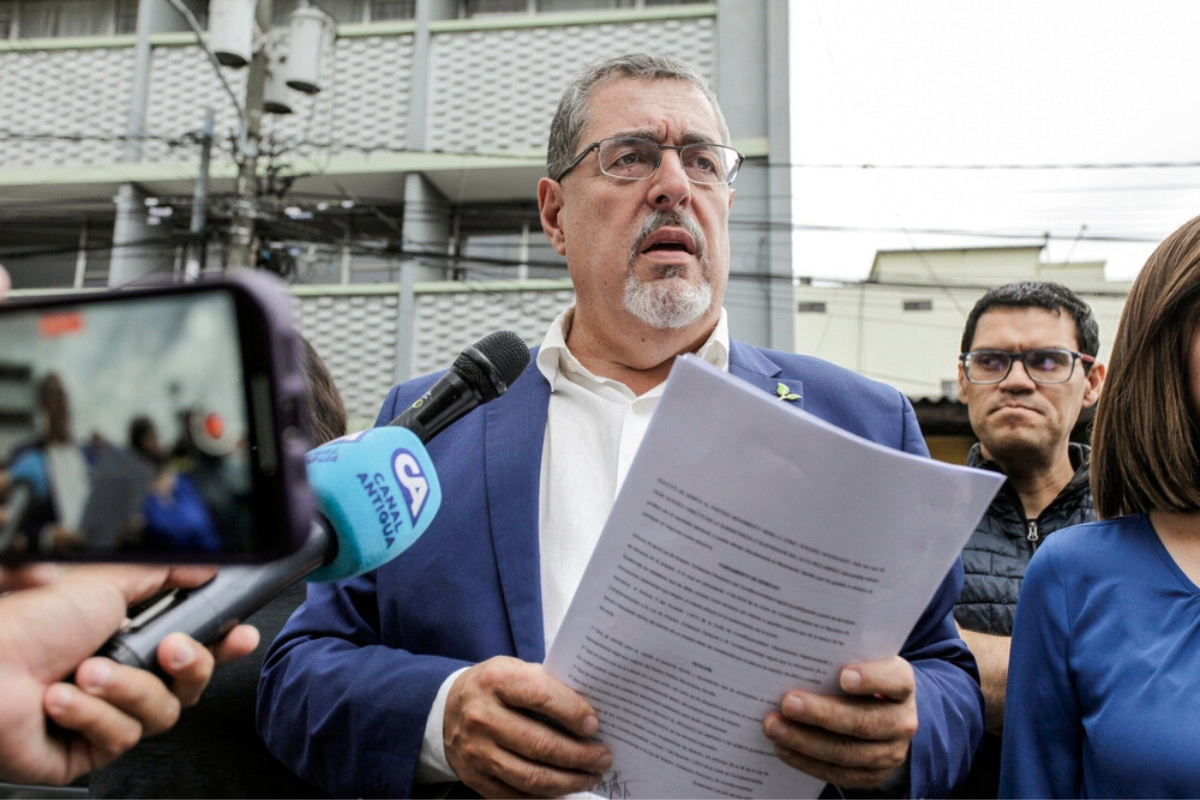Problems around questioned elections in Guatemala deepened yesterday as the country’s prosecutor’s office announced the suspension of the left-leaning party Movimiento Semilla (Seed Movement), whose presidential candidate Bernardo Arévalo surprised analysts by earning a place in the August 20 runoff.
The decision was made public by Prosecutor Rafael Curruchiche, who said the signatures of 5,000 party members were “forged,” meaning that the party’s registration was illegal.
Sanctioned by the U.S., Mr. Curruchiche leads Guatemala’s infamous Special Prosecutor’s Office Against Impunity (FECI), a body that is central to the judicial crisis that has sent multiple judges into exile, leading international courts to last year include Guatemala in a list of countries committing “severe human rights violations.”
Things went from bad to worse in 2023, as Guatemala banned four different presidential candidates ahead of the elections, many of them seen as highly competitive but critical of the regime.
Mr. Arévalo’s Semilla movement, also highly critical of the government, was not included among those banned, but this has seemingly changed after his surprise performance last month.
Speaking to the press, Mr. Arévalo rejected the accusations, calling the suspension a “technical coup d’état” and saying that his party “will not obey a spurious and illegal decision.” Experts have also questioned the ruling saying that the country’s electoral law states that a political party “shall not be suspended when the election process is already under way.”
The decision came less than two weeks after Guatemala’s high courts suspended the official release of the first-round results, ordering a nationwide vote recount based on fraud complaints. This week, however, the country’s electoral authorities confirmed results and revoked the suspension, raising hopes that the process could move forward with a modicum of normalcy.
Electoral court chief Irma Palencia said she has not yet been notified about the ruling, raising doubts as to whether Semilla’s suspension will actually be valid.
In the meantime, unhappy voters are already organizing protests against the ban in the capital Guatemala City, with support ranging from the U.S. to Guatemalan civil society organizations.


 Search
Search






































